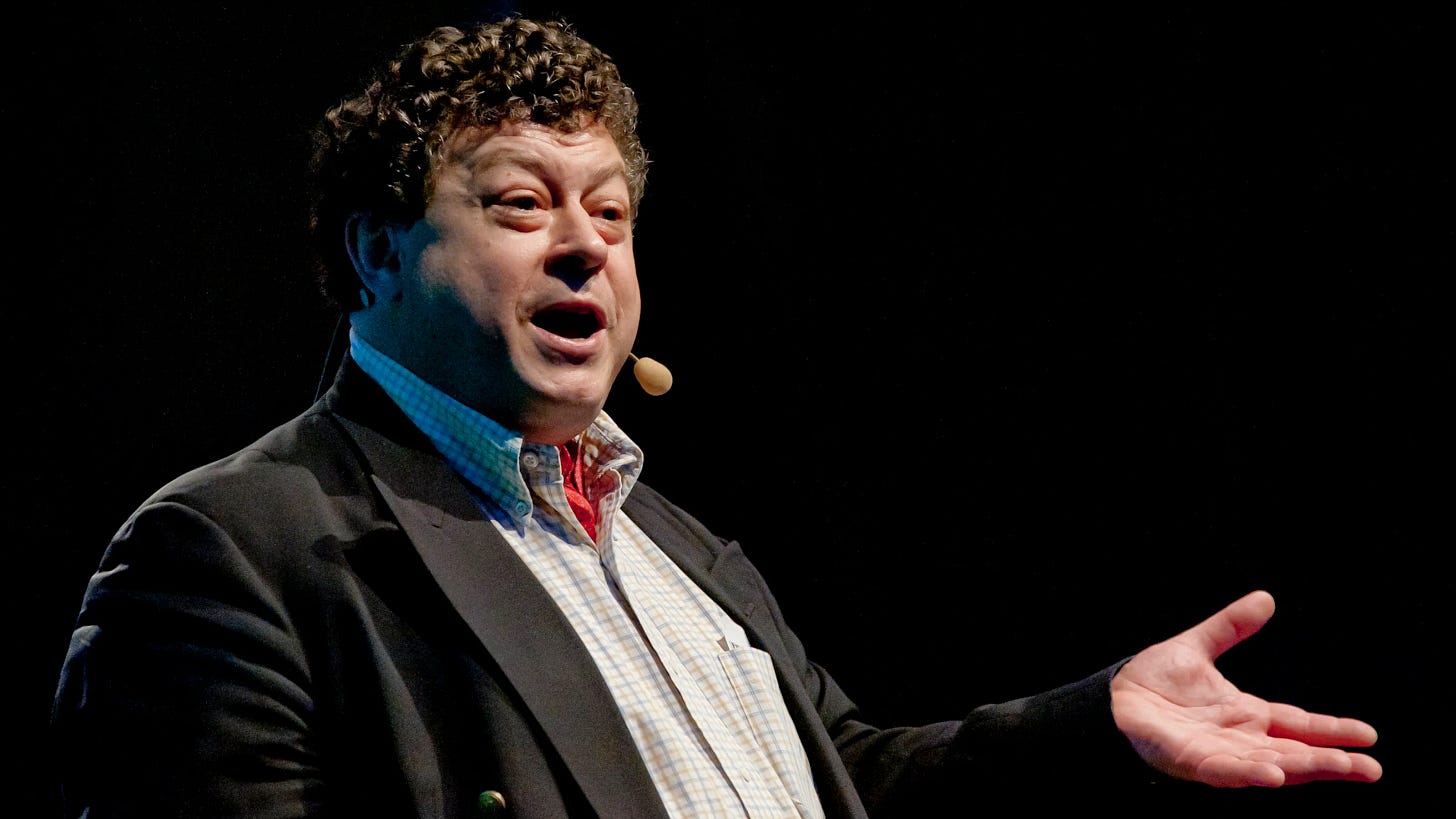Rory Sutherland is a British advertising executive, behavioral economics expert, and author known for his insights into consumer psychology and decision-making. He is the Vice Chairman of Ogilvy UK, where he has worked for over three decades, pioneering the application of behavioral science to marketing and branding. A sought-after speaker, Sutherland has given influential TED Talks and written books such as Alchemy: The Dark Art and Curious Science of Creating Magic in Brands, Business, and Life. His work emphasizes the importance of perception, emotion, and non-obvious solutions in problem-solving. He is also a columnist for The Spectator, where he explores psychology, technology, and consumer behavior.
Why did we invite him on?
Rory Sutherland was one of our first-ever guests, appearing on the show in the deep recesses of 2018. Since then, he has exploded in popularity, described by The Guardian as “one of the most unlikely TikTok sensations of the day”. We’ve wanted Rory back for a while, and this time we wanted to ask him what nobody else will: why is advertising so political now? As one of the most influential marketing strategists and thinkers of the modern age, we knew he’d have an invaluable insight.
What did we talk about?
It’s not exactly clear when, but at some point, the motivations of marketing shifted. Brand recognition, household awareness, beating out your competition… they now had to share space with a further consideration: the company’s “social mission”. Once this switch occurred, it was no longer enough for a brand to have the finest product, the snazziest logo, or the catchiest jingle - consumers had to believe in what the product stood for and, indeed, against.
”There was a trend towards ‘brand purpose.’ You adopted a social mission, and advertising became weirdly ideological. There’s always been an element of that - historically, Coke was Democrat and Pepsi was Republican, which Trump has broken with completely - and some brands are big enough to carry it off.”
But things are changing, and no movement encapsulates the shifting tide like the Bud Light boycott of 2023. In case you don’t recall, in April of that year, Bud Light (America’s most popular beer) sent a case of personalised cans to divisive transgender influencer Dylan Mulvaney. Major conservative figures, from Matt Walsh to Kid Rock, motivated a boycott which saw sales of the one-time mainstay beer plummet.
When Rory looked at the story, he found “nothing to be upset about.” He couldn’t understand why the backlash was as swift and vicious as it was. But that’s not to say nothing can be learned from the fallout.
More recently, another major company caused a stir: Jaguar. Last November, the renowned car manufacturer shared a polarising 30-second “brand film”, and the internet lost its mind. To some, it was the death rattle of a once-luxury brand. To Rory, it’s the ultimate sign of life. Jaguar had one of the most enviable brands in the world - instantly recognisable, a name synonymous with luxury and class. Why would they do anything to jeopardise it? As Rory explains, all the most successful companies do the same thing: change.
It opened a new avenue of conversation: What are established companies supposed to do? The trick is to balance the two: maintain your identity and the trust of the buying public, but sniff out what they want before they realise it. This involves risk, and risk begets failure, but we shouldn’t be worried about the companies who take those swings but the companies that don’t.
But we didn’t just discuss the politics of marketing - we tackled the marketing of politics. “The Democrats are the biggest marketing f**k-up one can imagine.” But why?




